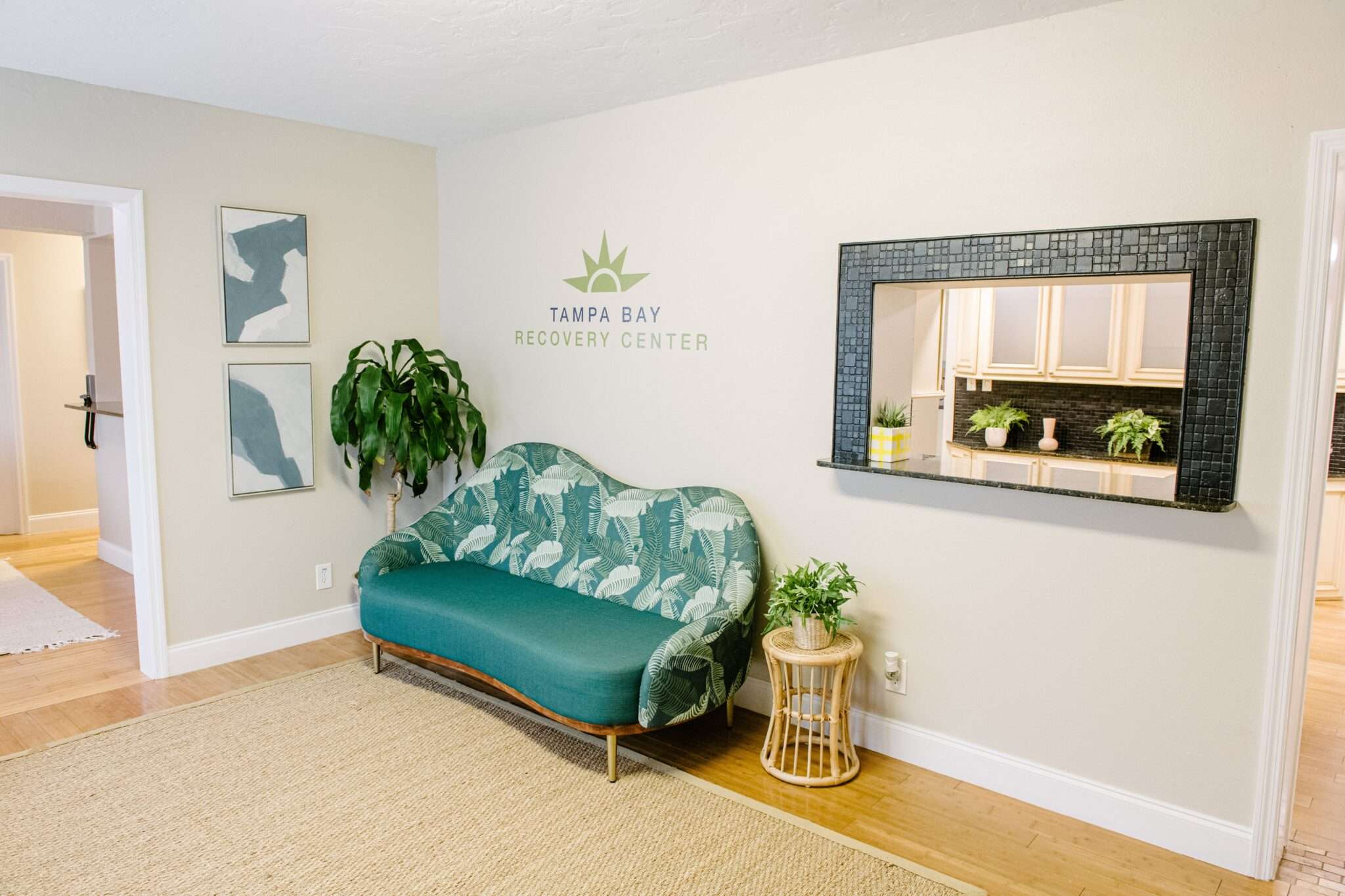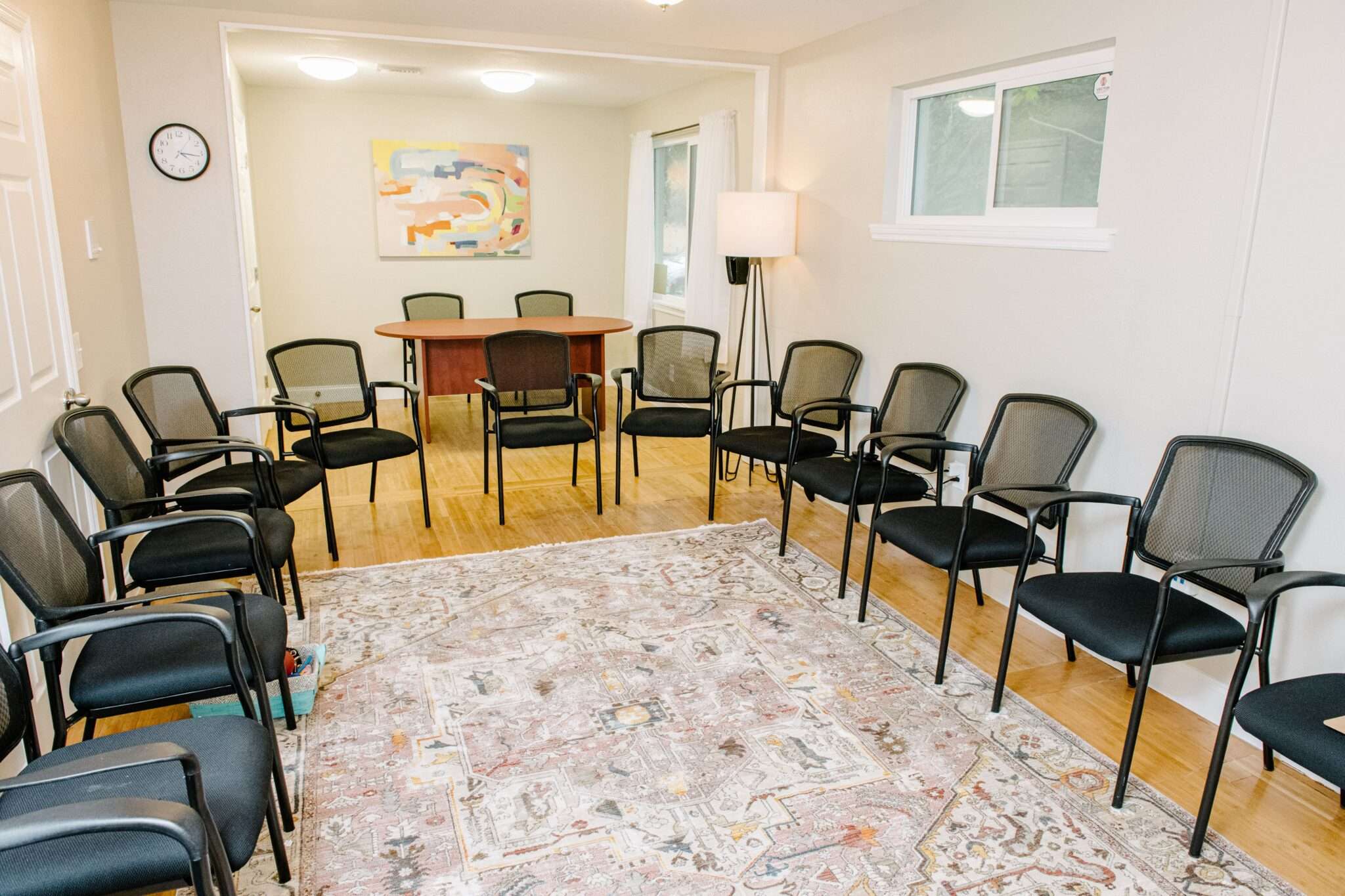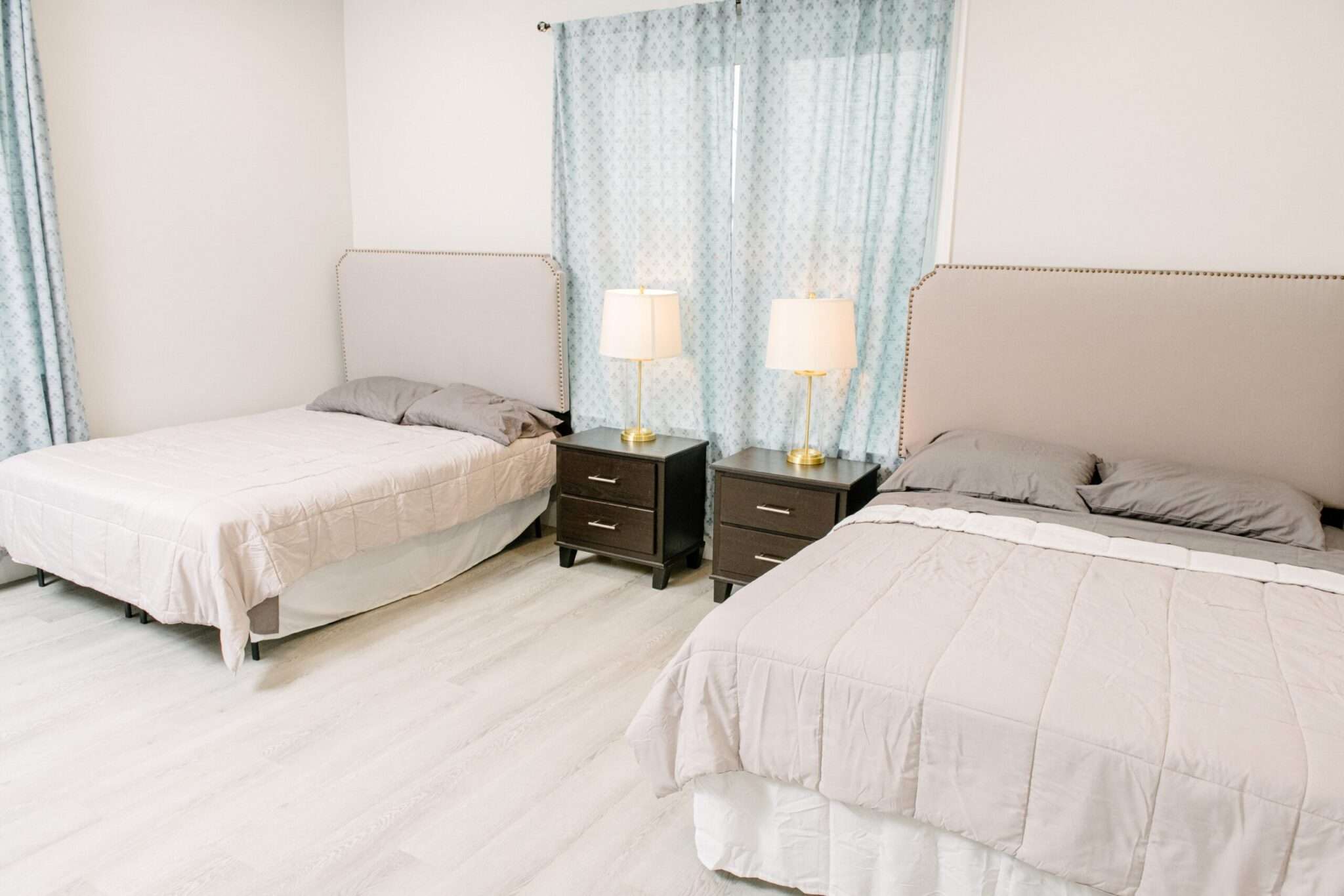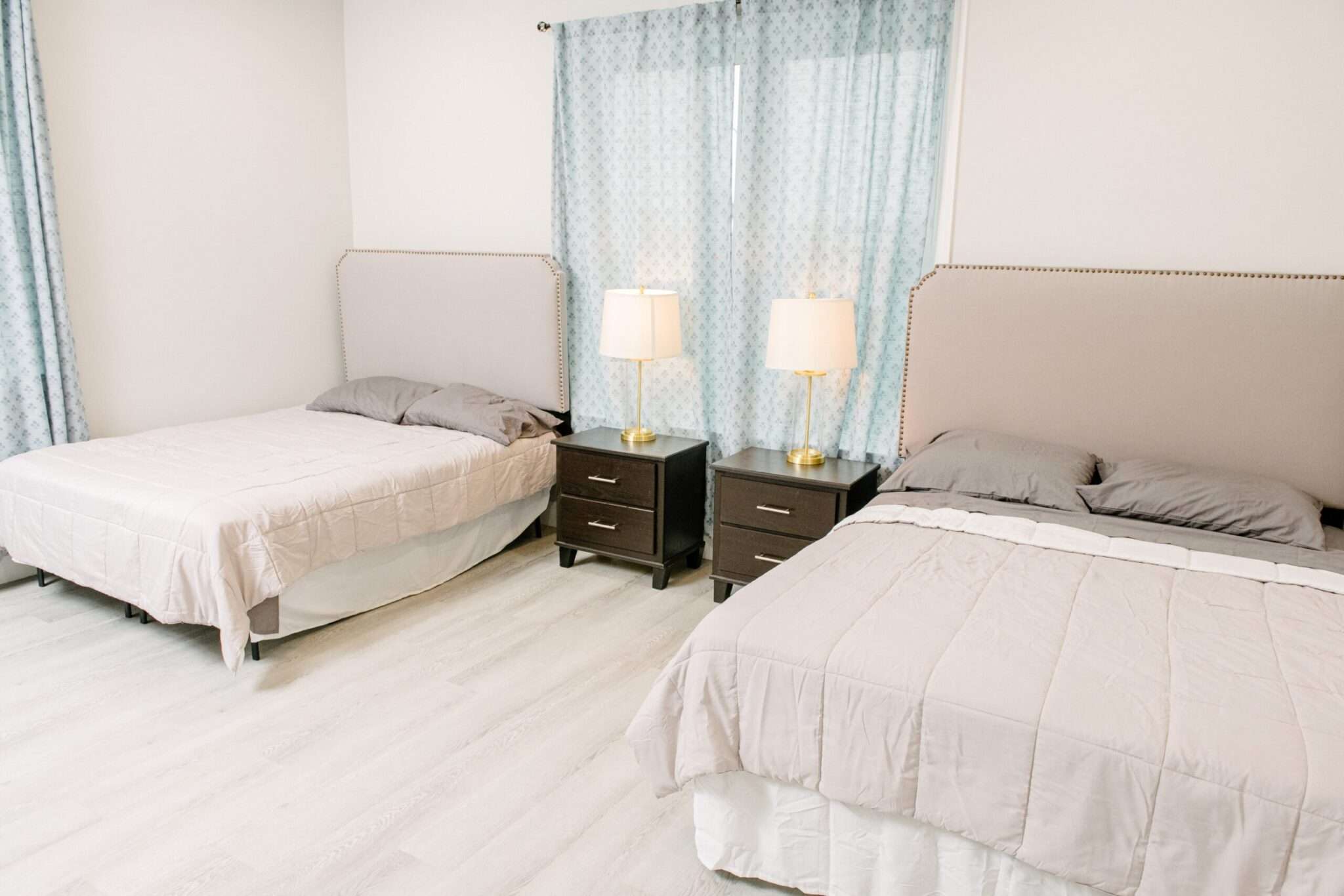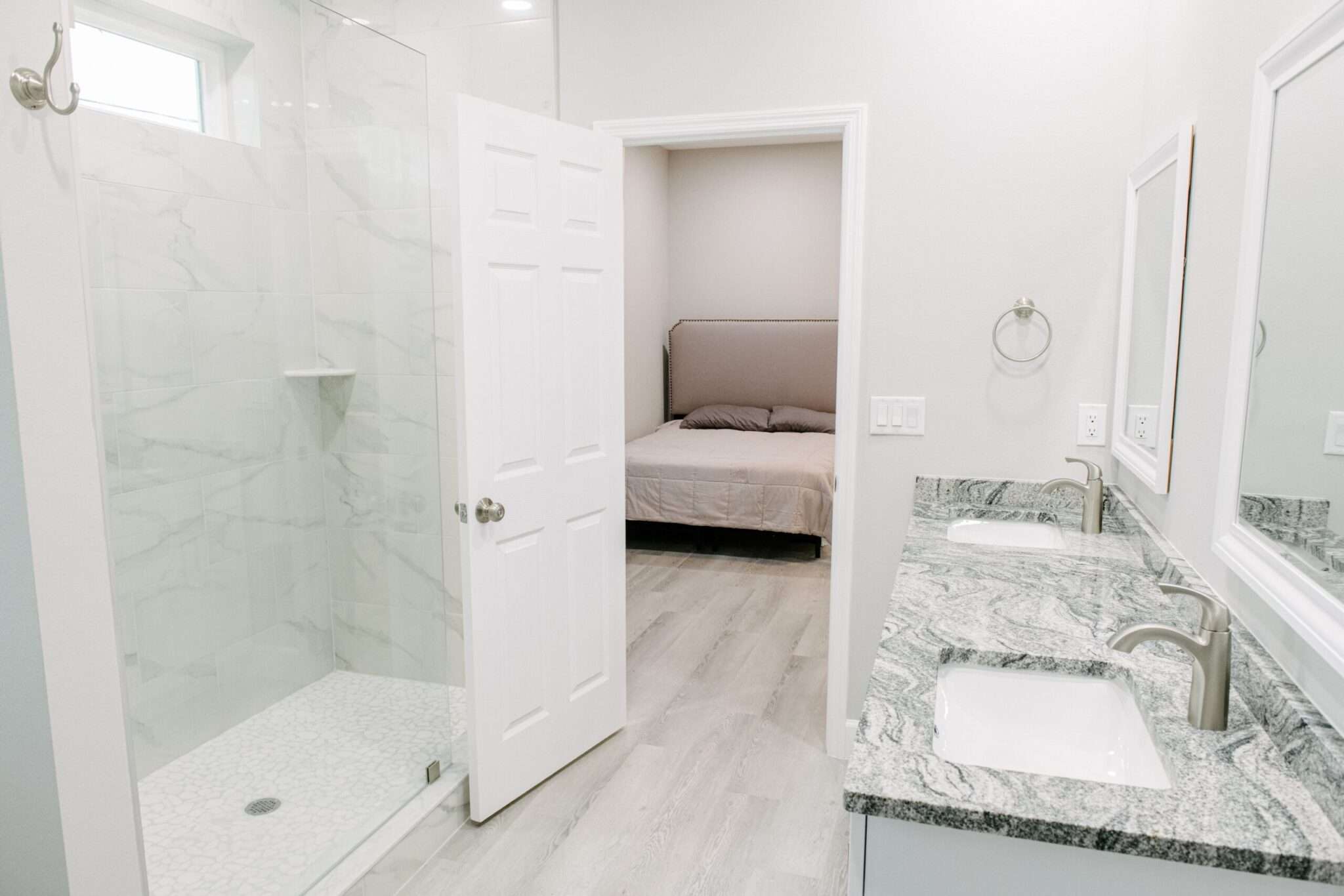Sleep deprivation psychosis can occur when you aren’t getting enough good-quality sleep. When you don’t address this issue, your symptoms can worsen—even leading to the development of chronic medical and mental health conditions.
Gulf Coast Recovery Center is here to help you or your loved one with mental health disorders resulting from—or causing—sleep deprivation. Visit our admissions page now to get the help you need.
What is Sleep Deprivation Psychosis?
If you aren’t getting enough sleep, your brain cannot filter the information it receives daily. It also doesn’t get the rest needed to restore the balance of chemicals used throughout the day. As a result, your brain doesn’t function optimally, leading to disordered thinking—including psychosis.
Psychosis refers to mental health symptoms like hallucinations, delusions, and disorganized thinking. These are hallmark symptoms of mental health disorders like schizophrenia and schizoaffective disorder. However, psychosis can also occur during manic episodes of bipolar disorder. You could even have psychosis during extreme depressive states.
About 1 in 3 US Adults Don’t Get Enough Sleep
According to the Centers for Disease Control and Prevention (CDC), “about 1 in 3 adults in the United States reported not getting enough rest or sleep every day.”
Furthermore, the CDC found that:
- “Nearly 40% of adults report falling asleep during the day without meaning to at least once a month” and,
- “[A]n estimated 50 to 70 million Americans have chronic, or ongoing, sleep disorders”
Sleep deprivation can lead to negative consequences, including:
- Risk of injuries, including car wrecks and other accidents
- Chronic health problems, like hypertension, heart disease, diabetes, stroke, obesity, and kidney disease
- Difficulty focusing, learning, and concentrating
- Diminished immune system function
- Emotional health issues, like irritability and frustration
- Mental health disorders, such as depression, anxiety, and—in some cases—sleep deprivation psychosis
When you don’t get enough sleep, you could lose touch with reality and develop psychosis.
According to European Psychiatry, “Even in healthy individuals, sleep deprivation can lead to a number of psychopathological changes, including perceptual distortions, hallucinations and delusions.” In other words, sleep deprivation could lead to symptoms that mimic psychotic disorders.
These symptoms are usually temporary and only occur in extreme cases of sleep deprivation. For most people, resolving their sleep deprivation will resolve their psychotic symptoms. However, if you don’t get help for disturbed sleep, you could develop a chronic mental health disorder.
How Much Sleep is Enough?
The US Office of Disease Prevention and Health Promotion states, “Most adults need 7 or more hours of good-quality sleep on a regular schedule each night.”
It’s important to remember that this doesn’t mean 7 hours of lying down—the key term is “good-quality.” Sometimes, you get 7 hours of rest but struggle to stay asleep throughout the night. Other times, you do fall asleep yet still don’t feel well-rested.
Some factors can influence the quality of your sleep. For instance, drugs and alcohol might make you drowsy, but they often inhibit you from having the deep, restorative sleep your body and mind need. Anxiety and stress could interrupt your sleep, resulting in poor-quality sleep.
So, sleep deprivation doesn’t just mean you aren’t sleeping long enough. It means you aren’t getting the good-quality sleep you need to function optimally throughout the day. And, this could lead to physical and mental health issues, like chronic medical conditions and sleep deprivation psychosis.
Am I Getting Enough Good-Quality Sleep? (9 Signs That You Are Sleep Deprived)
It can be difficult to tell if you are getting enough good-quality sleep—especially if you rest for 7 or more hours. But, with sleep, it is about quality over quantity.
The following are 9 signs that you are deprived of good-quality sleep:
- Daytime sleepiness
- Falling asleep quickly for a few seconds (microsleeps)
- Slowed cognition (thinking and processing information)
- Short attention span
- Impaired decision making
- Reckless behaviors
- Poor memory
- Lack of energy
- Mood swings
If you notice these signs, it is best to get ahead of the issue. Otherwise, you could develop chronic conditions or worsening symptoms.
How Can I Improve My Sleep?
You could improve the quality of your sleep by making lifestyle changes as well as adding stress reduction techniques to your daily routine.
The following tips can help you improve your sleep quality:
- Avoid drinking caffeine in the evening
- If you smoke, consider quitting, since nicotine is a stimulant
- Get at least 20 to 30 minutes of light to moderate exercise per day (examples include: a daily walk, yoga, jog, sports, or weight training)
- Use meditation and deep breathing to relax before going to bed
- Write in a journal before bedtime to get out any worries that built up throughout your day
In addition, it’s important to create a nighttime routine for good sleep hygiene, which includes things like:
- Go to bed and wake up at the same time every day (including weekends)
- Engage in relaxing activities an hour before sleep (ie., sit down, read a book, journal, etc—avoid doing anything physically demanding)
- Make sure your bedroom is dark and quiet (block light from entering with curtains, use a sound machine or ear plugs to cancel out noise)
- Use your bed only for relaxing, sleep, and sex—that way, your mind will associate your bed with only these activities
- Get out of bed immediately upon waking (try to avoid snooze buttons)
- Avoid using your phone or other electronic devices in bed
But, if you still can’t get enough sleep, or develop mental health issues, like depression or sleep deprivation psychosis, you need professional treatment.
Treatment for Sleep Disorders and Co-Occurring Mental Illness
Sometimes, sleep disorders cause mental illnesses, like psychosis, depression, and anxiety. However, at other times, mental health disorders cause sleep disturbances. After that, your symptoms become cyclic, and it’s hard to tell which came first.
Regardless, if you have trouble sleeping and a mental health disorder, you’ll need to treat both issues. Fortunately, treatment for mental health and disturbed sleep have a lot of overlapping features.
For one thing, you’ll need to learn stress-reduction techniques for improved sleep and mental wellness. In addition, many psychiatric medications have a calming and sedating effect—which can improve your ability to fall and stay asleep. Talk therapy can also help you resolve psychological problems that keep you up at night.
Get Help for Sleep-Deprivation Psychosis Today
Poor-quality sleep can lead to several health concerns, including chronic disease, cognitive dysfunction, and sleep-deprivation psychosis. At Gulf Coast Recovery Center, our outpatient mental health treatment programs will help you deal with disordered sleep as well as any co-occurring mental health disorders.
Contact us today to get the help that you deserve.


